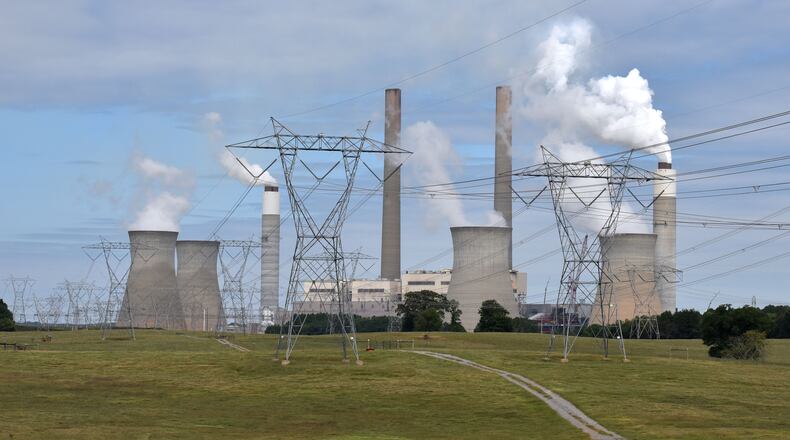Lawmakers concerned about how coal ash is disposed of hinted Tuesday that they may consider more safeguards over how state environmental officials monitor its presence in landfills and ash ponds across Georgia.
Coal ash is a waste product of burning coal that can contain toxic metals such as mercury, lead and arsenic.
While Georgia Power, the state's leading energy supplier, is in the process of shutting down all 29 of its coal ash ponds at 11 plants statewide, energy suppliers from outside the state still ship millions of tons of coal ash to Georgia to dispose of it. Many of those out-of-state shipments are going to private landfills, which aren't subject to the same rules as public ones.
The meeting came as some members of the ad hoc coal ash group of the House Natural Resources and Environment Committee indicated they were especially concerned about how those shipments are transported to Georgia and whether stricter storage requirements are needed for private landfills.
And it was clear some hoped stricter requirements might possibly have a definite effect: inspire companies shipping coal ash here to potentially "take it somewhere else," said state Rep. Debbie Buckner, D-Junction City.
State law requires coal ash to be stored in lined landfills to prevent seepage into the soil or water table, and officials with the state Environmental Protection Division noted an effort to increase monitoring requirements and give the public more notice and information.
Energy providers have said the risks to public health are minimal if the ash is stored in lined landfills that take active measures to suppress windblown ash, control runoff and monitor groundwater.
But environmental critics say that Georgia laws still don’t go far enough to ensure that landfills accepting coal ash are sited far from rivers and other water sources, or that they are adequately monitored for seepage into the water table.
Last month, the Sierra Club said it planned a lawsuit against Georgia Power over potential contamination related to its pond closure plans, saying it didn't go far enough to prevent contaminating local waterways. The company, which expects to spend roughly $2 billion recycling or treating water from the ponds, said it is doing more than legally required to safely close the ponds and protect water quality.
About the Author
Keep Reading
The Latest
Featured




